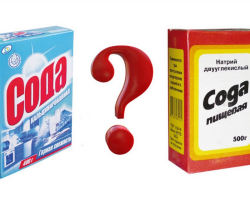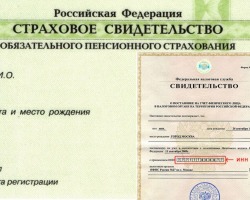How is the "Still" particle? Read the rules and look for examples of sentences in this article.
Content
- Still: what part of the speech?
- The meaning of the word "nevertheless"
- “Still, all the same or all the same,” the rule: as the word is written correctly-through a hyphen (with a dash), together or separately, why is it written this way, what will be correct?
- Still, I managed: as it is written, an example, sentences
- All the same: how is it written?
- How the particle “still” is written with words, with different parts of speech, verb: rules, examples
- Still, how is it written, stands out: commas, other punctuation marks when it is written with a large, small letter?
- The words synonyms for the word after all: examples
- Is the word used with the prefix “Super”: how is it written?
- Video: particle spelling
Foreigners do not in vain consider Russian the most difficult. The same word in it can have a radically different spelling. One of these words is a particle of "all the same." Even after the school course, many are confused - whether it is written separately or through a hyphen. In this article we will figure out how to write this word correctly. Also here you will find many examples of using such a particle and proposal with it. Read further.
Still: what part of the speech?

There are many articles on our website about spelling words. For example, how the word "but" or "for that" is written - Separately or separately.
To remember how this or that word is written in Russian, it is necessary to draw up many sentences with it and learn the rules. But first, it is worthwhile to figure out what part of the speech this word form belongs to. "Still" - This is a word that is a particle. However, in combination with unions "a", "And", "but" It can be an opposing union - an example:
- The guy was short - what to say, but Still I liked him.
- The site has been ready for a concert for half an hour, and still The musicians were hesitated with the exit.
- The connection was bad, but military still I managed to distinguish the call sign.
"Still" How a particle is used in order to express an objection or opposition. Example:
- Yes, with a longing in her voice she sighed, how could still It's nice to return to the city of your youth.
- Where still Have I seen this man? - tried to recall Grigoryev
Why "Taki" amplifying particle?
- It is impossible to "break" it - word "Taki" Never used separately. Therefore, part of the speech is official.
- The word form enhances the emotional color of the previous word.
- A particle used after the root of “everything” changes the role in the situation.
So, we figured out part of speech and its use, now let's learn the meaning of this word form. Read further.
The meaning of the word "nevertheless"

This particle is spoken. She indicates the existence of something, to which, it would seem, there were no prerequisites. However, this fact happened. Synonyms can be called words "Still", "nevertheless", "however" etc. Read about the meaning of this word below.
"Still" As an opposing union is used in case of indicating a certain fact that should not have happened, but still took place:
- Despite the fact that he never really knew how to fight, he still He managed to protect his girlfriend from hooligans.
- Despite the fact that Peter called yesterday and said that he had a temperature, he still He will come to our meeting.
- Oksana still I decided to prepare a dance for the school competition, despite the fact that I was very afraid to disgrace.
Now let's analyze the rules that explain the spelling of such a part of speech. Read further.
“Still, all the same or all the same,” the rule: as the word is written correctly-through a hyphen (with a dash), together or separately, why is it written this way, what will be correct?

Many people even have recently graduated from school are confused how to write such a particle - “ still, all the same or all the same ". How the word is written correctly - through a hyphen (with a dash), together or separately. The rule will tell you why it is written exactly what it will be correct.
Grammar claims that the amplifying particle "Taki" It is written through a "dash" in such cases:
- After the verb: “I asked him not to spend money, but he got drunk, bastard!” - Strengthening indignation.
- After adverbs: "Are you afraid of heights, have you really come to jump with a parachute?" - Strengthening surprise.
- After other particles: "In order to just eat ice cream of 1000 rubles, this is quite a lot" - Strengthening admiration with a note of doubt.
As for separate spelling "Taki", it takes place after pronouns and nouns:
- Amazing! He still got into the notes during singing. No wonder he trained.
- Katya came to the exam on time.
But how is it written correctly "Still"? After all, there is a contradiction of the rules. There is another strict and uncompromising rule.
The words "all" and "Taki" are written separately only if there is a particle between them "and": "All the same". In all other cases - only a hyphen.
Commas after "Still" It is put only in some cases - such as author’s punctuation, to strengthen the meaning - an example:
- Still, I cannot share your fun, Fedor Petrovich. The wife is in the hospital, and you arranged a perfect route here.
Even more rules and examples below. Read further.
Still, I managed: as it is written, an example, sentences

Particle "Taki" It is written separately if it follows the noun. In the case of verbs and adverbs, it should be written through a hyphen.
Example, particle offers:
- Despite the fact that Pasha just returned from the cottage, he still managed to school. There must be control in algebra. And the guy decided that it was better to appear, but to write a job with the class than to subsequently suffer with equations on their own.
- Wow! You still managed to train.
A similar situation with other verbs: you still decided, you still dared, you still came, etc.
All the same: how is it written?

We have already said above, since there is a particle between the particles and the pronoun "and", then the definition does not provide for a hyphen. However, these parts cannot be written together. That's why "All the same" It is written separately. But we should not forget that this is a conversational form. The literature is more often used by formulation "Still."
- Wow! All the same I went to look for a job. Looks like a cloth was washed down.
- Have you heard? Vaska all the same He wrote the control to the "three", despite the fact that he does not know a single theorem.
- After long persuasion, mom all the same allowed me to stay overnight with a friend.
- You all the same Already a student. Help me solve the physics problem. - asked the sister.
- Need all the same To finish everything you take to the end.
- You all the same, Ivan, do not be offended, ”said the forester. Damn him knows who was hanging around here at night. So I had to pounce on you, cut a bit, and then tie it.
- I all the same I don't understand what Tanka found in him? No appearance, no earnings, and even boring. Horror! My granny will be more fun.
Remember: Writing the design is somehow differently-let's say, “still” or “still,” is not allowed!
How the particle “still” is written with words, with different parts of speech, verb: rules, examples

Particle "Taki" It can be used with words through a dash or separately. With verbs, it is written through a hyphen according to the rules of the Russian language. As for the word "time", this is a noun. Therefore, in the case of "Just the same", everything is written separately.
- I just the same I was about to call you, and you yourself dialing my number.
- It's good that you came. I just the same I prepared very tasty donuts.
- I just the same Paul dragged here, so you have a chance to meet a novice writer.
- I came across the 14th ticket, about the spelling of particles, and I just the same I did not know how they are written correctly;
- Anyway, the segment must be replaced, since this loss just the same It approaches the previous song, not this.
In case of "enough" and "Enough is not bad" It all depends on the context. But almost always "Taki" With verbs, particles, adverbs and other different parts of speech, it is written through a hyphen.
Examples:
- She is enough interesting girl. It is strange that she does not have a boyfriend.
- It was enough A difficult solution, but still, I made a choice.
- You enough a strange man. I offer you a good job, and you refuse.
- She is enough She was very afraid of the snakes. I think that over the years this phobia has not disappeared anywhere.
- I enough He regretted that he came to graduation with his parents. All the guys danced and had fun, and I was afraid to make an extra movement.
- And I did not say that Vitya was weak. But again, it all depends on the situation. If he gets a strong opponent, he will lose.
- Again, we do not know what is in her head.
- Look, he he came! I really thought we would never see him.
- You found the same me among the crowd of people.
- Somewhere You came, then go, we will have lunch.
- Verno-Start people says! You will contact a married man - you will make grief for life.
- I went Vanka fishing, but caught three crucians.
- Russian women just An example of households, which is why they like them so much to Western men.
- You just Sample of decency. It's nice to watch.
- Thank you for i decided Visit our modest friendly meeting.
- I i'll wait Know him, so.
- Invite him to go to our holiday, was enough A good solution.
If the word "enough" It is considered as a short adjective, then you can write separately:
- Misha, enough torture a cat. Leave her alone.
- Enough These lamentations! The army is not a prison. I’ll serve a year and return, nothing bad will happen to me there.
As for the previous verb, with it a particle "Taki" It is written through a hyphen. It is also written through a hyphen with an adverb - enough, just, finally.
Examples:
- You finally wrote an essay? I thought I would have to wait for you in the corridor for another three hours.
- When I finally He invited Katya to a date, she admitted that she was afraid that in view of my indecision this could never happen.
- Yes, get together you already finally! How many snot can be wrapped on a fist? Are you a man or who?
- Just! Eka Baryna was looking for!
- You just Alain Delon in this fitted coat.
- She is straight It burns out with impatience to tell you this news.
Still, how is it written, stands out: commas, other punctuation marks when it is written with a large, small letter?

The presence of punctuation marks is required if "Still" serves as an attribute to emphasize some meaning, as well as the significance of the fact. Thus, the particle is converted into an introductory word and is distinguished by commas.
Examples:
- Despite the fact that Anna nodded, still, it was easy to notice that she did not quite agree with the opinion of her husband.
- Day, stillbegins with coffee.
- Girls, still, interesting creatures.
As for the comma after the particle, the allocation is allowed if it acts as an introductory word:
- Still, Israeli relatives will come to us tomorrow. You will have to stay at home. They are seen with you every 5 years.
- I have not intended for a year to sit my pants in this position. Still, I have higher education and experience, unlike some.
However, there are cases when a comma is not needed. This happens when the word "Still" Not implied as an introductory.
- You still A good guy, albeit a major.
- Despite the rain, I still I went for a walk with the dog.
- Anya still She clicked on the teacher for truants.
The word is written with a capital letter when it stands at the beginning of the sentence, and with a small one, if in the middle of it. Examples:
- Still You are my favorite class and it’s a pity that is already graduation.
- You still A friend came to me, I was waiting for you.
For this word you can choose many synonyms. Read further.
The words synonyms for the word after all: examples

Sometimes the proposal must be built in such a way that together the words “nevertheless” use a synonym. How to do this correctly and what words can you replace this particle? Here are examples of the words of synonyms by the way after all:
- Yet
Example: and yetYou, good, Volodya, man. Although it’s still very young.
- Nonetheless
Example: although he is a notorious bully, but Nonetheless, in the classroom lessons, he always behaves quietly.
- Anyway
Example: Anyway, my average score is much higher than yours. So I have much more chances to enter the university.
- No matter what
Example: No matter what, I will continue to train. And who knows? Perhaps in the next school tournament I will win.
- But still
Example: Egor was exhausted, but yet, reached the finish line with everyone.
- However
Example: However, Valya coped with the task. Despite the fact that he complained about his complexity.
- However
Example: He complained every second, but As a result, everything ended very well.
We have considered the basic rules and examples. It remains still to find out how such a word form with the prefix “Super” is written. Read further.
Is the word used with the prefix “Super”: how is it written?

"Super" - The prefix that came from a foreign language. Since it is not a verb, not a particle or an adverb, to use it with a word "Still" You can separately.
Here's how the examples are written:
- Still superWhen you have such cool players in your team.
- Still superWhen your dad is a teacher. You can ask not to put a bad mark.
- Still superWhen parents leave for the weekend to the country. You can invite friends and arrange a party.
Now you know all the rules regarding the spelling of the particle "Still". Repeat them and come up with your examples to fix the material. Good luck!
Video: particle spelling
Read on the topic:







